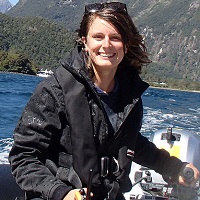
School is supposed to give us a good education, but let’s face it—the actual skills most of us walk out of the mainstream schooling system with are pretty much useless when it comes to living a happy, fulfilling life.
I was good at school. My sisters lived in the shadow of my A-pluses, but neither of them ever stopped and asked me whether getting good grades was actually working for me. It wasn’t. I was an insecure, anxious people-pleaser with a secret conviction that something was wrong with me. I wasn’t nourished in the real arts of Life.
We may learn maths, but we don’t learn empathy with others, how to argue well, how to grieve, how to breathe deeply or how to make wise choices. We don’t learn how to nurture our natural happiness, kindness, generosity and mischievousness.
We do learn that everyone else is separate, that life is a giant competition, that the more data you can stuff into your head the more praise you’ll get and that being honest gets you in trouble. We learn to sit still and shut up. We learn to evacuate our playful, intelligent bodies and retreat into our heads—and for many of us in the Western world, we stay there until the moment of death.
We learn confusion and unhappiness.
Maybe the naughty kids yelling out, “What’re we gonna use this for?” were on the right track all along.
I know we can do better—and so, let me introduce you to some courses I would have signed up for pretty damn quick (Warning: these classes may lead to great self-understanding and passion):
1. Other People are Scary: How to Talk with Them.
In this class we look at communication with others, starting with the basic energetic feeling of fright when encountering another human. We consider such questions as: Are they separate? Why do I feel alarmed? How do I connect with others?
Building off Mindfulness 101, we’ll connect with our bodies to stay present in the intense experience of being around other bodies.
Modules include:
- Learning how to be in silence with others.
- Radical honesty: pushing through face-saving to say what you really want to say.
- Paranoia and self-involvement—is it really all about me?
- Loosening up: learning how we are affected by drugs and alcohol—do we need these?—and how to use them safely.
2. Sex and Sexuality (separate streams for male and female).
This class isn’t “How to Not Get Pregnant.” There are no small booklets with pictures of infected groins, and the condom-banana routine is nowhere to be found.
Instead, we look at the vital sexual energy that is everyone’s basic experience of being alive, how to nourish it and healthy ways to express that with other people.
We go into “embarrassing” subjects, while discussing and understanding the feeling of embarrassment in the body and what it is. Subjects include body anatomy, sexual arousal in male and female bodies, taboo fantasies, sex in the animal kingdom, gender indoctrination, the experience of lust/desire and the dynamics of sexual suppression.
We create a safe environment to discuss, understand and move on from abusive or traumatic historical events. Finally, students make a study of natural fertility, with an emphasis on understanding our own bodies.
3. Understanding Suffering.
This core curriculum course includes a series of discourses from Realized Wisdom Teachers, who understand for themselves the true causes of suffering.
In “Module One,” we’ll study the Great Traditions: what our ancestors learned about the experience of being human. We investigate wisdom from the Native American, Zen, Aztec, English Radical (Ranters and Diggers), Vedantic, Crazy Wisdom, Tibetan Buddhist, Sufi, Outcasts-and-Renegade, Australian Aboriginal, Early Christian and Yogic Traditions. Students are welcome to research further traditions to reflect their own backgrounds and interests.
The second module involves small group discussion with a teacher-mentor of our experiences of suffering, including:
- Self-responsibility: the basic dynamics of blame and projection. Restoring students to themselves.
- The cramp: what is it and how do we experience it.
- Self-consciousness: understanding this and observing it in action.
- The dynamics of “Seeking”: how we look for happiness outside ourselves and why it doesn’t work.
- Loss: why does change and loss affect us so deeply. Discussion of our experiences of loss.
The third and final module is a “Perspective” unit, where students choose from a range of volunteer opportunities. After this period of service, we will reconvene to consider the subject of suffering with new awareness.
4. Wonder and Awe Nourishment Class.
In this class, we start with William Blake’s assertion that “Everything that Lives is Holy,” and discuss why our experience of the world might feel different from this. We examine the barriers to awe and wonder, and explore times when we might have felt this and why.
We then travel as a group for three months through some of the most magnificent mountain landscapes of the world, living simply and learning how to open to awe and wonder. Tutors include a family of placid yaks. We gradually introduce “Appreciation of Other Species,” before moving on to “Appreciating Humans.”
This course includes a spontaneous poetry component, as well as extended discussion of cosmology and current discoveries in physics.
The emphasis throughout is on recognizing and feeding receptivity to awe and wonder. Students may graduate realizing they don’t really know anything at all.
5. Appreciating our own Majesty: The Art of Drinking from our Own Well.
Prerequisites: Wonder and Awe Nourishment Class.
This class consists of three 10-day silent meditation retreats, interspersed with study of how to nourish the heart in ourselves and others. Topics covered include neediness, selfishness, attention-seeking, self-hatred and taking ourselves for granted—and how these phenomenon relate to our obligation to appreciate ourselves.
The question we will return to on this course is: “What—or who—are we actually appreciating?”
Students will spend extended time periods with emotionally mature adults who actually like themselves, being encouraged to learn the same. We will also spend time with tiny babies, drawing each other, increasing body-positivity, learning deep breathing, and appreciating our heartbeats.
6. How to Listen.
A full-year, three-part class which covers listening to your body, listening to other humans and listening to the earth. Emphasis on increasing receptivity.
In the listening to your body unit we look at healthy eating, including hands-on cooking and eating sessions where students can learn how to listen to what their body does and doesn’t like. We also look at how to structure our day, based on the natural needs of the body to move and rest. We discuss how everyone’s needs are different and so there is no “one-size-fits-all” formula, which is why listening is such a vital skill.
We will make an in-depth study of why the messages we receive from the body get confused and learn how to wade through the white noise to our own inherent wisdom.
Study materials include Russian and Central American folktales exploring intuition, shamanic materials on listening to the Earth and the latest research on listening to plants.
Students will learn about discipline of attention and how to listen to others without trying to fix them or merely waiting for a chance to talk.
7. Work, Service and the Intelligence of the Body.
This course encourages students to make an in-depth study of themselves and each other, in order to understand work and their unique relationship with it. We consider how to deeply understand ourselves without falling into narcissism, how to recognise our passions in the wisdom of childhood, what barriers there are to living what’s right for us and our relationship with money.
Students will learn to orient the question of passion to “How can I best be of service?”—rather than “What will suit me best?”—and learn about true fulfillment. Along the way we will do sub-units on pitfalls such as Martyrdom, Do-Gooderism, Take-Take-Take Syndrome, Floater Syndrome and Resistance to Change. We will look at the guilt and embarrassment that can arise when it’s not clear where our passions lie, and how this can lead us into life-cramping scenarios.
Finally, each student will craft themselves a road-map, not for what to do, but for the priorities they want to hold in their practical work-life decisions. Students graduate with the ability to make wise, discerning choices for themselves based on conscious, embodied values rather than conventional customs.
Includes work placement internships with mature, fun adults living full expressions of their gifts.
8. Understanding Courage in Daily Life.
This class involves two modules: physical courage in a two-month rain-forest intensive, and emotional courage in an intimate group environment. Taught by a range of instructors including Very Small Animals.
9. Dealing with Anger and Conflict.
In this class we study gorillas to gain a better understanding of healthy emotional expression. In the first half of the course, students travel to the jungle and live with a host family of gorillas to observe different approaches to anger and conflict.
Back in the human sphere, we undergo a series of role-plays testing out a wider range of emotional expression in a safe environment. Students make a study of the energetic feeling of anger in their own body, moving through healthy expression and into a deep understanding of the causes of anger and frustration.
We learn non-violent communication skills for dealing with interpersonal conflict and how to communicate in a way that de-escalates heightened situations, without repression. Students will make a study of how to argue well without taking things personally or trying to make others wrong.
Students will also be taken through an intensive series of body meditations to allow them to fully experience emotional experiences, while understanding how to avoid getting lost in them.
10. How to Grieve.
In this class, the early morning heron and the cold morning mist will teach us how to let grief travel through our nervous systems.
We revise earlier learnings about emotional suppression and emotional wallowing, discuss the limitations that are placed on feeling and why that is, and learn how to express grief in a natural way. Students will learn how to feel into their own grief—whether for loss of loved ones, lost opportunities, unnameable sorrow or grief for the suffering Earth.
***
If only…
But you know what? It’s not too late. It’s never too late to step onto the path of learning to be fully human. This knowledge is out there, if you know where to look. You have to find it in living bodies—that’s how us humans really learn. It’s how we learned to be unhappy, and it’s how we can learn to be wise and content.
Taking responsibility for this education, as mindful adults, is a wonderful gift to this troubled world.
.
Author: Rosalind Atkinson
Image: Flickr/justine warrington
Editors: Yoli Ramazzina; Renee Picard








Read 1 comment and reply